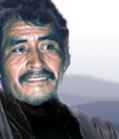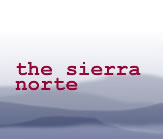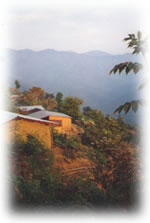 |
 |
||
 |
|||
|
RELATED THEMES communications economics environment forestry social institutions migration OTHER LOCAL THEMES BACKGROUND |
development
Others see possible development opportunities but do not necessarily manage to overcome the early period before a project yields a return, because of lack of financial support or partners - or perhaps entrepreneurial ability. One narrator elaborates: ".I had the idea, if it was possible, to build a tree nursery.But [it didn't happen]. I talked to others, but there is no support for that. Working through.our communal authorities, we could start such work... But what we really need are the resources; we don't have resources" (Mexico 23). They also need technical support, even those businesses which are already underway: "...We need somebody who can give us some advice; to see how the lathes are, if they need more space, more power, I don't know. But we need somebody to tell us this is the way you should do it, that way the wood is better used." Another narrator (Mexico 15) also talks of training needs: "We need training...so that we have a more general knowledge and know how to manage and understand, all things considered.training is very important, to be able to move ahead." In the past, he says, local pride has meant that community members have not sought outside help: ".there are opportunities, we have to go after them.The opportunities are there, we just need to let go of some of our pride, the stupid pride makes us believe that we know everything and can do everything and it isn't true. This is what holds us back." Outside support was not sufficient, however, to save the fish farm project in Ixtepeji from near disaster, caused by poor siting of the fish ponds: "We did it on our own, and we worked on the job for 60 days without stopping. I can't explain how we maintained ourselves but we did it, each person put in his own personal effort. we had.a visit from a girl who worked at ASPRO (Agua y Solidaridad para el Progreso - water and solidarity for progress) [and] give us the little advice she could. I remember it was on 13 October 1996 - we had heavy rains, which filled up our pipes, and they burst and we lost all the fish. It was around 4 tons that we lost .[but] we didn't get disheartened.We looked for another place higher up. it has given us better results; since in these ponds there is not a strong current like the one that swept through the first ponds" (Mexico 24). Several narrators emphasise that better community organisation is crucial if new projects are to succeed. Migration remains high, largely because of the difficulties of creating local jobs. One narrator from Yavesía (Mexico 7) comments: ".one lives better here, in the village [than in Mexico City], it's just that it isn't very well organised [here], there's no work plan... with a big village organization, or.[if we] set up a workshop for making clothes or something.then one would live better." Yet of the four communities, it is Yavesía, it seems, which has come closest to creating, over time, a community development plan: "Well, the decisions of the village have involved a lot of work, it has been very hard and there have been very difficult moments. The fact that.the community is now saying that we must look after, protect and conserve [the land and resources] so that our children can enjoy it and that they have accepted an ecotourism project to make good use of them, that they have put into practice projects such as the cultivation of mushrooms and fish farming, that the people say that the land is sacred to them because that's where their life is - I think that these are the things that fill one, not with pride but with satisfaction... They are things that show the determination of the village to continue ahead" (Mexico 12). Interestingly, Yavesía's determination to develop without over-straining its forests and other natural resources, was criticised by some government agencies as being "anti-development" (Mexico 12): ".when we went to the government institutions to say, to demand, that they stop the mancomunados' (joint communities).exploiting the forest on Yavesía's territory. I remember very well what the institutions said to us, 'Yavesía is against development, is against progress. The exploitation of the forests will bring the villages out of poverty. It's for development, for progress and it's for you.' .And we told them, 'No, it doesn't matter if we are poor or not, what we don't want is that more trees are cut down.'." At last they have been vindicated, he adds: ". now, in the last five or six years, with the famous sustainable development and conservation of the environment, well, now we've more or less been accepted by some institutions." Indeed, one recent development initiative is the community-based eco-tourism project, centred around Ixtepeji and its nearby villages of El Punto and La Cumbre. While many narrators express pride at the cargo system of unpaid community service and its focus on the collective good, the customary short-term mandates of elected community representatives are cited by one narrator (Mexico 15) as a significant bar to community planning: ".if one tries to do something, a job, an improvement for the community, well, it can't be planned properly, all the needs of the community aren't understood, things are done in the short term. .If one had a cargo that lasted six years one could implement a good work plan, a plan for development, or whatever one wanted to do in the community". quotes about development".people.going to the USA; they earn dollars and then invest them in the village" "We've advanced the progress of the community without destroying our forests, it's a model that will be given to the government.exploitation isn't necessary to be able to have things, we are an example of that." "If I had the opportunity to make a change, I would propose that the cargos (unpaid community positions) of municipal authority and comisariado (community official) last six years, because as it is now, the municipal presidency is just one and a half years." "If someone thought.[to] plant fruit trees and all that, with a big village organisation, or set up a workshop for making clothes or something, handicrafts from this village, then one would live better. [If that had happened] I would have stayed and not gone to Mexico City." "I would like there to be an office, a new organisation that could give opportunities to the young people who are growing up now, so that they don't exploit the trees too much, and so that they think of another way of life.look for the other means [of livelihood] that I believe are there. But we need good advisors who can lead us along a good path, so we can stop exploiting nature." |
|
 Several narrators talk of the difficulties of establishing new development projects in their communities; a number of obstacles, and needs, are discussed. For example, setting up a carpentry business in Ixtepeji to manufacture and sell furniture to government agencies and other clients in Oaxaca, required a government start-up grant:
Several narrators talk of the difficulties of establishing new development projects in their communities; a number of obstacles, and needs, are discussed. For example, setting up a carpentry business in Ixtepeji to manufacture and sell furniture to government agencies and other clients in Oaxaca, required a government start-up grant: